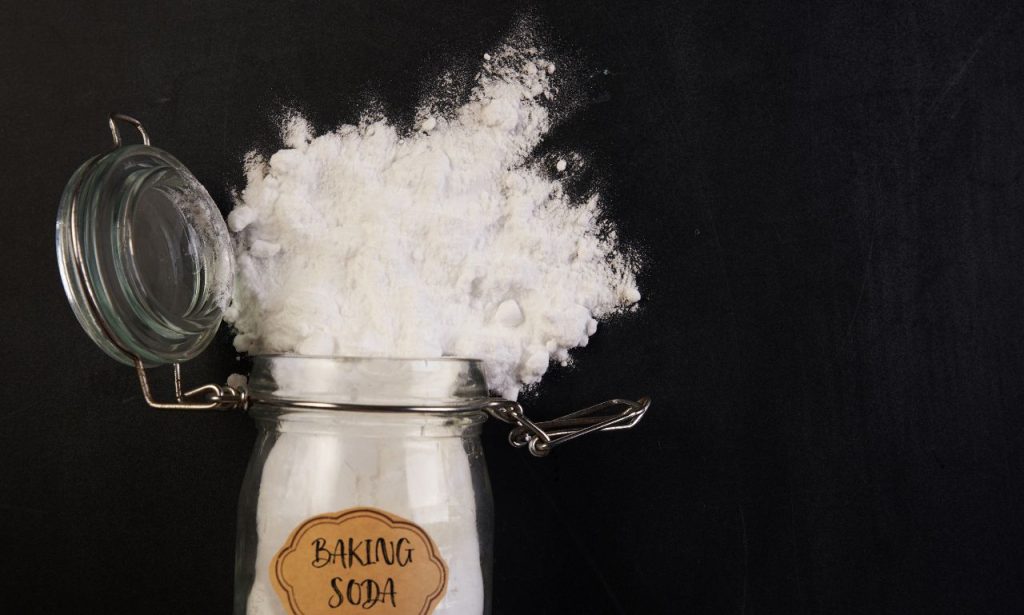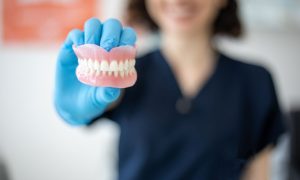Ever open up a brand-new case and get hit with that unmistakable chemical whiff? You’re not alone. Why do some cases smell like chemicals? It’s not just an unfortunate side effect—it’s all about the materials, processes, and even how long it’s been sitting around. This article dives deep into the reasons why some cases have such a strong chemical smell and what you can do about it.
Origins of Chemical Smells in Cases
Materials Used in Manufacturing
- Plastics and Synthetic Materials: Many cases, especially the cheaper ones, are made with synthetic materials. These include PVC, polyurethane, and other plastics that release volatile organic compounds (VOCs). The chemical smell is basically these compounds off-gassing—they’re escaping into the air, filling your nostrils with that unmistakable stink. It’s why some cases smell like chemicals the moment you open them.
- Foam Inserts: Cases with foam padding often emit odors as well. This foam, whether it’s polyurethane or polyethylene, can trap and release chemicals over time, giving off a strange smell that’s not exactly pleasant.
- Leather Elements: Some cases use leather or faux leather. The leather smell can either be natural or can result from the chemicals used in the tanning process—adding to that chemical cocktail.
Adhesives and Chemicals in Production

- Glue and Adhesives: Many cases are put together using strong adhesives. These glues contain chemicals that take a while to dissipate. That’s why your brand-new case might have a glue smell that sticks around for a while.
- Formaldehyde: Adhesives often include formaldehyde—yes, the same stuff used to preserve lab specimens. It’s responsible for that odd chemical smell that sticks in your nose even when you’d rather it didn’t.
Dyes and Finishes Impacting Odor
- Chemical Dyes: The colorful finish on your case isn’t just magic—it’s chemicals. Dyes and other finishes used on materials can create a faux leather smell or other pungent odors that can linger, especially when the case is first out of its packaging. This is a major reason why some cases smell like chemicals right out of the box.
- Finishing Coatings: Many cases have additional coatings for waterproofing or durability. These chemicals, especially when new, contribute heavily to that chemical smell you notice right away.
Factors Contributing to Chemical Smells
Storage Conditions
- Time of Storage: Ever noticed how some cases smell worse than others? The longer something sits in storage, the more time it has to off-gas. However, if it’s packed in a non-ventilated space for periods of time, the fumes from the materials don’t have anywhere to go, intensifying the unpleasant chemical smell.
- Packaging: Packaging that’s completely sealed traps all those strong odors inside. This means when you finally unseal it, you get a concentrated dose of everything that’s built up. This is another reason why some cases smell like chemicals so strongly when you first open them.
Exposure to Heat and Humidity
- Heat and Humidity as Catalysts: Hot or humid environments can make a chemical smell even worse. When materials are exposed to heat, they can off-gas more quickly, meaning the strong chemical smell becomes stronger in warm conditions.
- Air Conditioning Impact: Even with air conditioning, improper temperature control during storage can create a horrible smell that refuses to go away.
Duration of Storage Before Use
- New vs. Old Stock: The age of your case matters. If it’s been on a shelf for years, the chemical off-gassing might have subsided somewhat. But if it’s fresh from the factory, brace yourself for a nasty smell.
- Faint Smell vs. Overwhelming Smell: Older cases might have a faint smell compared to newer ones that have that fresh-from-the-factory chemical kick.
Identifying Genuine Leather vs. Faux Leather Odors
Characteristics of Genuine Leather Smell
- Natural Leather Smell: Real leather has a distinctive smell—it’s rich and often described as a bit earthy. Unlike chemical smells, the leather smell is often more pleasant for most people. It doesn’t carry the toxic chemicals scent that synthetic versions do.
- Chemical Tanning Process: However, depending on the tanning method, even genuine leather can have a chemical odor, particularly when processed with chromium salts or other chemicals to increase durability.
Common Chemical Smells in Faux Leather
- Synthetic Composition: Faux leather is often made from PVC or polyurethane, both of which emit strong chemical odors. These materials are often manufactured with plasticizers, which help make the material flexible but also add to the strange smell.
- Glue and Coating Chemicals: Faux leather often uses more adhesives than real leather, which adds to the glue smell that can seem impossible to get rid of. The faux leather smell tends to be more synthetic and noticeably chemical in nature.
Neutralizing Techniques for Chemical Odors
Using Baking Soda

- Odor-Neutralizing Effect: Baking soda is an amazing neutralizer for unpleasant odors. Simply placing your case in a bag or box with baking soda powder can work wonders in reducing the strong chemical smell.
- How to Use: Spread some baking soda in a bowl and place it alongside your case in a sealed container. Leave it for a few days to soak up the stench.
Employing Newspaper Method
- Absorbing Chemicals with Newspaper: Newspaper is incredibly absorbent and can help reduce the musty smell or chemical smell. It’s an easy and cost-effective way to make those nasty smells go away.
- Method: Stuff the case with crumpled newspaper and let it sit for a few days. Replace the newspaper every day or two until the horrible smell has reduced to a manageable level.
Scented Soaps and Other Solutions
- Using Scented Soap Bags: Placing a few scented soaps inside the case can help mask the unpleasant odors while reducing the intensity of the original chemical smell. Over time, the vanilla scent or fresh scent of the soap will take over.
- Activated Charcoal: Charcoal is a great way to deal with pungent odors. Just place some activated charcoal bags alongside your case, and let them absorb the odor over periods of time.
Preventive Measures for Maintaining Freshness
Proper Storage Solutions
- Ventilated Storage: Proper ventilation is crucial. Storing your case in a well-ventilated area can help reduce future chemical smells. It prevents indoor odors from building up and makes the faux leather smell less obnoxious over time.
- Avoid Extreme Temperatures: Extreme heat or cold can lead to more off-gassing. Keeping your case in a controlled environment will help mitigate the bad odor problem.
Regular Cleaning Practices
- Use of Mild Cleaners: Using gentle, non-chemical cleaners can help maintain your case without introducing more toxic chemicals. Steer clear of heavy-duty chemical cleaners which can make the chemical smell worse.
- Frequent Wiping: Wiping down the case regularly can help reduce build-up. This also helps in preventing any moldy smell that might develop.
Health Considerations Related to Chemical Smells
Potential Toxicity of Certain Materials
- Toxic Chemicals in Adhesives: Many of the glues and adhesives used contain toxic chemicals. Prolonged exposure could lead to adverse health effects, especially if you have a sensitivity to chemicals.
- Plastic Components: Some plastic components emit fumes that may not be noticeable but can still be harmful if inhaled over time, leading to symptoms like asthma attacks or exacerbation of pre-existing respiratory conditions.
Effects of Chemical Odors on Well-Being
- Asthma and Respiratory Sensitivity: People with asthma or other respiratory sensitivities may find these strong odors particularly troublesome. The chemical smell can irritate your airways, making asthma worse.
- Distorted Sense of Smell: Exposure to strong chemical smells for extended periods can lead to a distorted sense of smell or even trigger headaches. Persistent exposure may also cause underlying conditions like parosmia, where your sense of smell is altered.
Broader Discussions on Odors
Perception of Odors and Their Impact
- Emotional Associations: Our sense of smell is directly linked to the brain’s limbic system, which is responsible for emotions. Therefore, a pleasant smell can instantly boost your mood, while a bad smell can lead to stress or discomfort.
- Environmental Odors and Reactions: Environmental factors such as agricultural communities might mean you’re exposed to different environmental odors than someone living in an urban setting. Chemical odors can be particularly impactful in enclosed odor spaces.
Managing Indoor and Outdoor Smells
- Using Air Fresheners: Air fresheners can mask a bad odor, but they don’t eliminate the source. Many air fresheners themselves contain toxic chemicals, which may worsen the problem if used excessively.
- Scented Candles: While they can create a pleasant smell, many scented candles also emit small amounts of chemicals that could add to your indoor odors rather than eliminate them.
Addressing Specific Smell Disorders
Parosmia and Phantosmia Explained

- COVID-Related Parosmia: The pandemic led to a surge in COVID-related parosmia cases, where people found themselves repelled by even previously pleasant smells. Chemical odors can be particularly nauseating to those experiencing parosmia symptoms.
- Phantosmia: This condition involves smelling odors that aren’t there. Imagine constantly smelling a chemical odor that no one else can sense—it’s not only annoying but could point to underlying conditions.
Conclusion
Chemical smells in cases are largely unavoidable if the materials and production processes lean on synthetic compounds. But understanding their origins and taking practical steps to neutralize or reduce these nasty smells can make all the difference. Whether you’re dealing with a musty smell, glue smell, or even a pleasant smell gone bad, tackling the issue head-on with practical solutions will ensure your experience is as odor-free as possible. If you’ve ever wondered why some cases smell like chemicals, now you have the answer—and the tools to fix it.
ALSO READ: How Can I Make My Car Smell Nice Again?
FAQs
Baking soda, activated charcoal, or even crumpled newspaper can help reduce chemical smells effectively.
Some chemical smells come from toxic chemicals, and prolonged exposure may have health implications, particularly for those with respiratory issues.
Faux leather contains more synthetic materials, adhesives, and finishes, all of which contribute to that strong chemical smell.
It depends on the material and storage. Some cases might lose the smell in a week, while others could take months for the unpleasant odor to completely dissipate.




